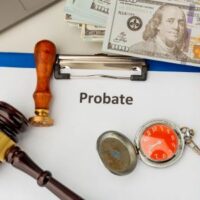How Probate Works for a Florida Intestate Estate

Even though people are aware that creating a will is an extremely important estate planning task, many either do not get around to it or mistakenly decide they do not need it. Under the circumstances, Florida’s statute on intestate estates applies. Essentially, these laws create a will where one does not exist, because the provisions distribute property to heirs, dictate how the probate process works, and impose legal requirements just like a will would.
If you are an interested party in an intestate estate, you should be aware of how estate administration differs compared to a case involving a will. The details will vary depending on your role, whether you are a spouse, child, distant family member, or even a creditor seeking to get payment from the estate. You will best protect your interests when you have a Dade City probate lawyer to advise you, but some information on the process is helpful.
Role of Personal Representative: When there is no will naming an executor to manage estate administration, a personal representative must be appointed by the Florida probate court. The judge will refer to the statute on preferences for personal representatives, which states the following.
- The decedent’s surviving spouse has top priority to act.
- If there is no surviving spouse or that person declines, an individual who is selected by the heirs may serve as personal representative.
- The heir in nearest degree to the decedent could be appointed by the court, such as children, grandchildren, parents, and grandparents. When there is more than one individual in this position, the judge will select the most qualified.
Note that someone may not qualify to be appointed as a personal representative. Anyone with a felony conviction, minors, and incapacitated individuals cannot serve in this position.
Spouse’s Share of Intestate Estate: The portion of the estate assets that go to the surviving spouse differs based upon whether the decedent had other descendants. As a summary:
- If there are no descendants of the decedent, the surviving spouse takes the entire estate.
- If the only descendants are those related to both the decedent and surviving spouse, the spouse still takes the entire estate.
Shares for Other Heirs: When the decedent had descendants that are not related to the surviving spouse, they receive one-half of the intestate estate. This is typically the case when there are children from a different relationship. Also, if the decedent and surviving spouse have surviving descendants, and the surviving spouse has descendants unrelated to the decedent, the separate descendants do not take any share. The surviving descendants and surviving spouse each get half.
Contact a Florida Probate Attorney to Discuss Details
This information should give you a general idea of where you stand as an interested party in an intestate estate. For more information on the role of personal representative and shares for surviving family members, please contact The Law Office of Laurie R. Chane in Dade City, FL. You can set up a consultation with an experienced estate administration lawyer by calling 352-567-0055 or visiting us online.
Source:
leg.state.fl.us/Statutes/index.cfm?App_mode=Display_Statute&Search_String=&URL=0700-0799/0732/Sections/0732.101.html
